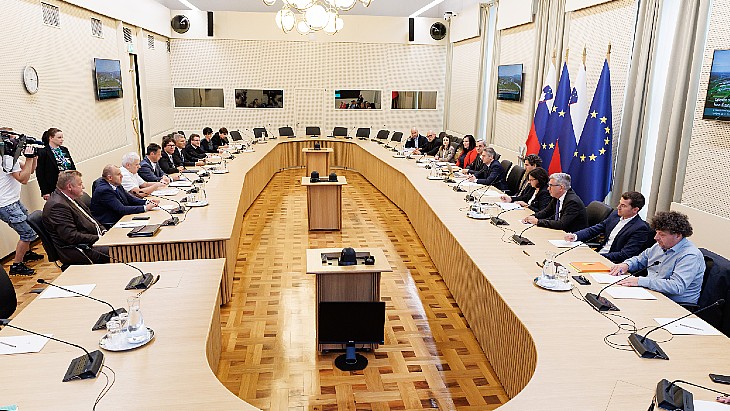Slovenia's Prime Minister Robert Golob has said that there needs to be public backing, via a referendum, before the new nuclear project can go ahead, and he said the new working group was a "step towards examining whether" the new nuclear plant - a second unit at the existing Krško plant - "can be part of the Slovenian power industry's solution for dealing with the climate crisis".
The group will also "study how to use special legislation to reach a new nuclear facility as quickly and economically as possible", he added.
State Secretary for the National Nuclear Programme, Danijel Levičar, head of the working group, emphasised that the government of Slovenia recognised the strategic importance of the construction of JEK 2.
Director General of GEN Energija Dejan Paravan and JEK2 Project Manager Bruno Glaser attended the meeting and outlined the steps being taken "to speed up the implementation of the project ... according to the planned timeline in such a way that the final investment decision is made by 2028 at the latest".
Krško, a 696 MWe pressurised water reactor, is Slovenia's only nuclear power plant and generates about one-third of its electricity. The plant, which is co-owned by neighbouring Croatia, began commercial operation in 1981, and a 20-year extension to its initial 40-year operational lifetime was confirmed in mid-2015. Krško is owned and operated by Nuklearna Elektrarna Krško, which is jointly owned by Croatia's Hrvatska elektroprivreda (HEP Group) and Slovenia's GEN Energija.
GEN group says JEK 2 could provide 8 TWh electricity per year, bringing with it the benefits of being able to reduce the need to import electricity, cut CO2 emissions as well as being used for district heating schemes and providing jobs and skills across the Slovenian economy.















